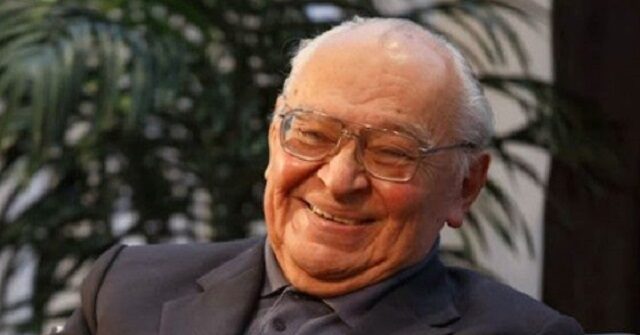Father Gustavo Gutiérrez, the renowned Peruvian theologian and founding figure of Liberation Theology, passed away recently, leaving an impactful yet contentious legacy within the Christian community. Born on June 8, 1928, in Lima, Gutiérrez is most famous for his seminal work, “A Theology of Liberation,” published in 1971. This text reframed the role of the Catholic Church in Latin America by incorporating Marxist socioeconomic theories into its teachings, particularly emphasizing the plight of the disadvantaged. His work challenged traditional views, advocating for an interpretation of the Gospel that prioritizes social justice and the struggles of the oppressed. In acknowledgment of his contributions, Pope Francis commended Gutiérrez in a letter for his commitment to the poor and his theological endeavors, highlighting their importance to humanity.
Gutiérrez’s theological framework argued that poverty is inherently linked to sin, requiring a radical transformation of societal structures. He called for not just a rethinking of the spiritual but also a tangible political theology aimed at social change, which included proposals for the reform of property systems and the potential establishment of socialist societies. In presenting these radical ideas, he positioned the Church as a champion of social justice, compelling it to engage directly with the socio-political realities facing the marginalized in Latin America. Gutiérrez managed to gather both fervent supporters and harsh critics of his ideas, as they resonated deeply within social movements but simultaneously raised alarms within the Vatican and broader Catholic community.
In the 1980s, the Vatican initiated a series of critiques aimed at Liberation Theology, viewing it as an ideological threat that blended Marxist principles with Catholic doctrines. Cardinal Joseph Ratzinger, who later became Pope Benedict XVI, was particularly concerned about the potential misinterpretation of Biblical teachings in favor of class struggle narratives, warning against the conflation of the “poor” in Scripture with Marxist interpretations of the proletariat. The Vatican’s instruction, titled “Libertatis Nuntius,” condemned Gutiérrez’s ideas for their perceived risks of distorting Christian truths, particularly in their focus on revolutionary political action. This pushback was emblematic of a broader tension between advocating for justice through Christian doctrine and the ideological implications of Marxism.
The Church’s response culminated in 1986 with “Libertatis Conscientia,” further reinforcing the traditional teachings of Christianity while recognizing the importance of addressing issues affecting the underprivileged. While the Church has historically emphasized its “preferential option for the poor,” it drew a clear line against ideologies that espoused class warfare and revolutionary violence, which some deemed antithetical to core Christian principles. Pope John Paul II’s tenure was marked by an especially vigilant stance against the encroachments of Marxism, which he viewed through the lens of his own experiences living under a communist regime. This period of doctrinal resistance left Liberation Theology in a precarious position within the Church, despite its meaningful impact in many Latin American communities.
Conversely, Pope Francis’s approach has indicated a nuanced perspective on Liberation Theology and its relevance. Unlike his predecessors, Francis has expressed a degree of acceptance of the movement’s role in promoting social equity while also advising caution regarding its Marxist variants. His private meetings with Gutiérrez and public affirmations of the benefits of Liberation Theology reveal an evolving stance within the Vatican. In interviews, he acknowledged that while there were deviations within Liberation Theology that warranted critique, the movement had nonetheless played a constructive role in addressing the injustices faced by the poor in Latin America. This marked shift emphasized a more integrated vision of faith and socio-political advocacy, which has sparked renewed interest in Gutiérrez’s work.
Despite recognition from the papacy, significant discourse around the origins and influences of Liberation Theology persists in scholarly and political circles. Notably, a controversial claim emerged from Ion Mihai Pacepa, a high-ranking Cold War defector, alleging that Liberation Theology was a Soviet-backed effort to infiltrate the Church and advance Marxist ideology in Latin America. This assertion complicates Gutiérrez’s legacy, framing his theological innovations as more politically motivated than grassroots-driven. The intersection of Christianity and Marxism continues to provoke debate over genuine prophetic action versus ideological manipulation, raising questions about the intrinsic nature of faith when intertwined with political agendas.
Ultimately, Father Gustavo Gutiérrez’s death signifies not only the loss of a pivotal theological figure but also the ongoing struggles regarding the intersection of faith, politics, and social justice in the Church. His life’s work remains a source of contention, inspiring both advocacy for the marginalized and caution against ideological extremes. As the Church navigates its response to issues of poverty and injustice in contemporary society, Gutiérrez’s contributions and the broader implications of Liberation Theology remain relevant in shaping future conversations around faith and social engagement. The complexities of this dialogue reflect the evolving landscape of Catholic theology, where the quest for social justice continues to grapple with the challenges of maintaining religious integrity and fidelity to Christian doctrine.

